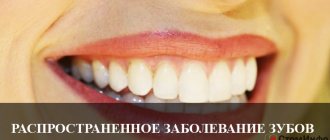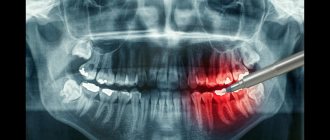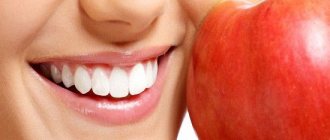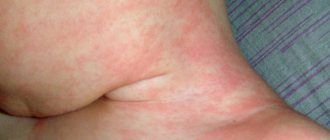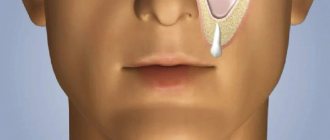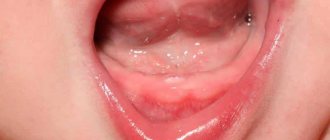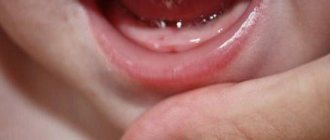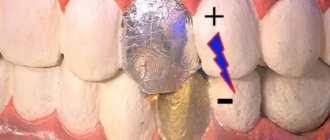Causes of pathology
Destruction of enamel and other parts, followed by a purulent-inflammatory process, occurs under the influence of negative external and internal factors. For successful treatment of pathology, it is important to find out why teeth rot from the inside - there are various reasons for this phenomenon.
| Factors affecting dental health | |
| Bad habits | These include smoking, drugs, and alcoholic beverages. An intensive process of destruction of enamel and pulp occurs due to prolonged smoking. It is the resins in tobacco that disrupt blood flow, the cells do not receive enough nutrients, and the gums under the tooth rot. Alcohol abuse also affects oral health. |
| Hereditary predisposition | Often the problem of the purulent process appears even in young children who have inherited bad teeth. In order to protect the child as much as possible from their loss, it is necessary to carefully monitor the personal hygiene of the baby’s oral cavity from the moment of teething. |
| Improper hygiene | If you do not regularly cleanse food debris and plaque from the enamel, there is a very high risk of developing purulent destructive processes. In addition to using paste and brushes, rinse your mouth after each meal and use a special floss. |
| Unbalanced diet | Eating right is important for oral health. A lack of useful microelements always manifests itself, the body’s defenses weaken and it is much more difficult for it to fight pathogenic microorganisms. Sweets, excessive consumption of coffee and strong tea, fresh juice, and citrus fruits have a negative effect. |
| Environmental factors | Polluted water, air or soil also have an impact on human health. If there is not enough fluoride in drinking water, dental diseases develop. |
| Weak immunity | Even with daily hygiene and a balanced diet, pathologies in the oral cavity can occur. Women during pregnancy and breastfeeding are also at risk of destruction and other ailments. For such people it is important to take vitamin complexes. |
Causes of purulent process in the oral cavity
Pathology also develops due to disruption of internal organs and chronic processes in the body:
- changes in hormonal levels;
- chronic diseases of the stomach and intestines;
- disorders of the kidneys and liver;
- various infectious diseases;
- pathologies of the upper respiratory tract.
In any case, it is necessary to determine why the teeth are rotting and begin treatment immediately to stop tissue destruction.
Causes of dental diseases
Symptomatic codependency
Tooth pain is called the most unpleasant and painful. One bad tooth can cause general malaise and fever.
In this case, the pain is localized not only in the tooth itself, but also in all nearby organs - the head, ears, temple, eyes, jaw.
Why do teeth give me headaches? Tooth pain is intense. This is caused by a huge number of pain receptors that are located in each dental element.
Therefore, the appearance of the most basic injuries and lesions will certainly cause severe pain.
Often, pain in the teeth first radiates to the temples, forehead, and back of the head.
The relationship between teeth and head has been scientifically proven. It is based on irritation of the branches of the trigeminal nerve and the vegetative formations of the facial part.
Scientists explain this phenomenon by the direct influence of toxins on the lining of the brain, the walls of blood vessels.
Against this background, pain in the head due to dental damage is provoked.
What determines the location of pain? This phenomenon depends on which tooth is damaged:
- molars provoke pain in the parietal or occipital region;
- fangs - throbbing pain in the temporal part;
- incisors - pain in the forehead;
- The lower teeth often provoke pain throughout the head.
The intensity and nature of the pain differ significantly. It is not always intense or sharp.
In some cases, there are manifestations of chronic headaches. Patients unsuccessfully struggle with such a symptom, not suspecting that teeth are to blame.
Such pain is called dental pain. The mechanism of its appearance: irritant influence of the branches of the trigeminal nerve, inflammation of high intensity.
The etiological factor is called malocclusion. Incorrect jaw closure puts a lot of stress on the joints.
Over time, the process provokes attacks of pain in the area of the ears, temples, crown or back of the head.
On the other hand, pain in the head occurs immediately after tooth extraction. This has a clear etiology.
Removing a tooth that hurts is a serious surgical process that provokes stress.
The medulla reacts quickly, causing pain as a protective reaction of the body.
Direct removal damages bone elements, gums, and oral mucosa.
They all have nerve endings that, when damaged, cause pain. After tooth extraction, the pain can only intensify.
This is how post-puncture syndrome manifests itself. Pain occurs due to disruption of the subarachnoid space, which is observed under the influence of the gradual release of anesthesia.
As a result, there is a headache, the syndrome radiates to the ear, forming significant swelling. Often this phenomenon indicates the development of complications.
With pathology, an unpleasant odor is always formed - this is a clear sign of impaired healing.
Normally, a “wet hole” and a powerful blood clot should always appear at the site of the extracted tooth.
They prevent infection from entering the wound and speed up the healing process.
The pathology is the appearance of a “dry socket” or the complete absence of a blood clot.
This clinic is observed in the following cases:
- taking certain medications, hormones;
- smoking;
- problems with blood clotting.
Often the cause of pain in the head after tooth extraction is severe inflammatory lesions of the oral cavity. We are talking about stomatitis, gingivitis.
The clinical process is blurred. To accurately determine the root cause of the pain problem, it is important to study in detail all the existing symptoms.
Head pain occurs after incorrect installation of crowns or dentures. Patients often forget about this fact.
Patients complain exclusively of a metallic taste, burning and darkening of the crowns.
A more detailed examination of pain in the head and tooth often reveals enlarged lymphadenoid elements.
Additional inflammation of the palatine arches is possible. Pain in the head and tooth provokes tonsillitis, damage to the pharynx itself and pharyngeal tonsils, which causes acute tonsillitis.
In this case, the pain in the head is complemented by:
- fever;
- painful swallowing;
- body aches.
Headache with tonsillitis depends on the intensity of the lesion. Often the lesions occur in the occipital area.
Dental reasons
Headache and toothache are the result of damage to dental elements. Experts have identified a number of ailments that provoke this clinic.
Pulpitis is a serious inflammatory process that affects the pulp - the soft elements of the dental structures.
The disease is caused by pathogenic bacterial agents. They enter the tooth through mechanical microdamages and carious areas of the tooth.
Pain occurs almost always, but varies greatly in intensity.
When enamel is damaged, the sensitivity of dental structures increases significantly. Against this background, even the slightest defeat is perceived more acutely.
In some cases, headaches occur and discomfort reaches different parts of the body.
Caries is another reason that provokes the clinic in question. The main reason for the development of this disease is infrequent, insufficient or improper brushing of teeth.
Another etiology of the process is excessive consumption of sweets. The disease is bacterial in nature.
Microbes accumulate between the teeth, multiply quickly, and spread throughout the oral cavity.
By releasing a very toxic acid, the protective shell of the dentition dissolves.
Pain occurs when a hole appears in a tooth. It tends to gradually deepen.
When the hole reaches the nerve, the pain in the tooth intensifies, acquiring a shooting character.
Additionally, a headache develops, which is localized mainly in the temples. Without adequate treatment, the whole head begins to “hum”, the patient loses the ability to sleep, eat and drink.
Sometimes it may seem that it is your head that hurts, not your mouth. Painful sensations can also occur in teeth from which the nerve has already been removed.
This is an alarming symptom, the causes of which are associated with a strong inflammatory process.
In this case, headaches and toothaches intensify in the evening. The reasons for its intensification are eating. The pain syndrome is often diffuse, so it can be difficult to determine the source of the problem.
The causes of pain in the teeth and head are different. But the defeat of one structure will necessarily affect the condition of another.
This once again confirms an important fact - the body provides an integral structure, any changes are universal in nature, affecting the entire body, but to varying degrees.
This is especially true for children. Due to the special structure of their ENT system, children suffer from otitis media more often than adults.
Their auditory tube is shorter and wider, so any infection easily enters the ear.
How to overcome symptoms
Identifying the root cause will allow you to choose etiotropic therapy and defeat the disease forever.
Home self-medication is only symptomatic, and therefore does not affect the etiology of the process. With such therapy, your health may worsen.
The odontogenic nature of the disease can be overcome by thermal procedures. In some cases, additional medications are prescribed.
If your bite is broken, it is important to correct it as soon as possible. Then the clinic is minimized. Additionally, for a speedy recovery, thermal procedures are prescribed in combination with massage.
In inflammatory processes, the effect of therapy directly depends on the timeliness and adequacy of its implementation.
It is primarily important to eliminate the toxins that cause irritation of the nerve fibers.
A course of anti-inflammatory medications and procedures is indicated. In severe, advanced situations, tonsil removal procedures are recommended.
After wisdom teeth removal, rest is important for a painless recovery. You will need to give up eating for some time.
This will quickly relieve swelling of the gums and eliminate the possibility of infection and harmful microorganisms.
An open wound requires complete rest for faster healing. It is extremely important to keep the socket covered with the blood clot for as long as possible.
If pain from a tooth radiates to the head, it is important to take therapeutic measures. Experts advise taking antispasmodic medications.
Qualified dentists recommend not touching the teeth during an exacerbation of the process. At first, it is worth carrying out conservative therapy to relieve relapse.
It is necessary to pull out a wisdom tooth not at the onset of inflammation, but during a period of rest.
If the pain radiates to the head, mouth rinses are useful as therapy.
A decoction of chamomile, calendula, a solution of soda, propolis or honey is perfect. Fresh lemon zest, which is applied to the temples for 10-15 minutes, also quickly relieves the disease.
Preventive measures
It is recommended to pay close attention to your health. This will prevent a number of lesions and ailments.
You should visit your dentist regularly. Hypothermia of the face and head injuries should not be allowed. You need to get rid of bad habits.
You can do any sport. You should undergo regular medical examinations to diagnose the initial stages of illnesses.
Useful video
Svetlana
Female, 22 years old. Russia, Yekaterinburg
Guest (not registered)
Hello! I really hope for your help, because... all the clinics that I had contacted before could not solve my problem. A month ago, I began to experience unpleasant sensations in my left temple - pulsation, sometimes even numbness, accompanied
dizzy
(I even fainted a couple of times)... Before that, I was worried about the “lower” tooth (also the left side) - my nerve hurt at night; after going to the dentist, everything seemed to be “successfully cured” (the nerve was removed). They also told me that it was necessary to “reveal” the 2 upper teeth - there was a hidden one there
caries
(and also had to work with channels). So, when all the fillings were placed, after a while I began to have all these symptoms - pain in the temporal part of the head,
dizziness
and sometimes there is even pain in these 3 “cured” teeth, almost simultaneously. Naturally, first I went back to that clinic to see the dentist who treated me - she said that symptoms such as
dizziness
certainly cannot be associated with “dental” problems, that it is worth checking the blood vessels (go to a therapist, neurologist), etc. and so on. But nevertheless, they decided to re-open the upper tooth (canal treatment was done again), because... when “knocking” on it, the pain was distinct. Now I walk with a temporary “bandage”; the doctor reiterates that symptoms such as numbness in the temple and
dizziness
CANNOT be related to all of this. To top it off, I’ll say that I turned to a neurologist and a therapist, they prescribed tests (I’ve been doing all this for the last 2 weeks), but no pathologies were identified on their part. Naturally, the therapist prescribed the drug
Betaserc for dizziness
, but during all this time of taking it there was no effect.
Please tell me, can all these unpleasant symptoms, which literally reduce the quality of my life, be associated with teeth, canals, etc., which the dentist treating me denies? (now I still walk around with a temporary bandage in my upper tooth, which still hurts, I have an appointment the day after tomorrow)
Toothache is very painful. A person feels especially bad when unpleasant sensations radiate to other parts of the body. As a result, the answer to the question of whether a tooth can cause a headache becomes obvious.
Features of the disease during pregnancy
The full development of babies in the womb requires a lot of vitamins and minerals. A complete restructuring occurs in the body, a woman needs to monitor her lifestyle and diet. Ideally, it is necessary to consult a dentist and eliminate the pathology before conceiving a child.
The danger of a purulent process during pregnancy is very great for both the mother and the fetus. Since many medications are prohibited at this time, the second trimester is considered a favorable period for dental procedures. You should visit a doctor immediately when the first signs appear.
Treatment of rotten teeth
Stages of the disease
When a person’s tooth rots from the inside, there is a direct threat to his health. It is important to recognize in time the first signs of the pathological process, which differ depending on the stage of the disease.
- The patient develops a characteristic unpleasant odor from the oral cavity. It is almost always present and does not disappear after cleaning.
- Without further treatment, dark spots of various sizes appear on the damaged enamel.
- The next step will be the dark areas of black. They can be located on the root, on the enamel, on the gum, which can only be seen on an x-ray.
- Next, a black cavity forms in the damaged area. Vivid symptoms appear in the form of pain, discomfort, and fever.
- The painful sensations are getting worse all the time. Throbbing pain signals a pathological process in the pulp, where soft tissues, nerve endings, and blood vessels are affected.
- At the final stage, the root of the tooth rots - the symptoms become more pronounced, it must be removed, often along with the root. The entire surface is destroyed down to the base, and it is impossible to attach an implant in such a place.
Often, the patient’s fear of visiting the dental office complicates the situation and the damaged area can no longer be saved. If the tooth is completely rotten, it only needs to be removed.
Consequences of the purulent process for the human body
Bad tooth... what not to do when you have a bad tooth
Too often events develop approximately according to this scenario: a person has a toothache, he walks around, sighs, puts garlic on the side that hurts, takes a pill, rinses his mouth - nothing helps... I suffered for a couple of days and the pain went away. The tooth collapsed, broke, and God bless him. And the fact that the roots remain in the gum will come out on its own.
We invite you to familiarize yourself with the symptoms of dental implant rejection: what are the signs to recognize the problem?
And he thinks that he has outwitted everyone, but you can’t outwit your body. Where there is a diseased or broken tooth, there is a constant source of infection. And the body fights with it and waits for the owner to help, but the owner doesn’t care.
Effect on the body
A person’s health can completely depend on the condition of his teeth. A spoiled smile interferes with people’s everyday life, creating not only health problems, but also psychological barriers. They not only create an unpleasant appearance, but the presence of such a disease threatens the condition of many internal organ systems.
The danger of caries for the body
Cyst
Rotting at the root is characterized by difficult discharge of contents, which often leads to the formation of cysts. If the infection has penetrated into the gum or pulp area, the formation is treated only surgically.
Today there are treatment methods that will not cause discomfort if you seek medical help on time. The later treatment is started, the worse the prognosis for the patient.
When suppuration occurs in the oral cavity, the following processes occur:
- in the area of pus formation there are millions of pathogenic bacteria;
- accumulated pus penetrates the bloodstream and bone tissue;
- the accumulated bacteria gradually poison the body, entering all the internal organs of the victim;
- Streptococci found in purulent masses can negatively affect the internal septum of the heart, thereby causing endocarditis.
- the patient's appetite decreases during the acute period of the disease;
- headaches, general malaise and weakness appear;
- rotting in babies occurs due to poor nutrition of the mother during pregnancy.
The purulent process can negatively affect the organs of vision, hearing, the functioning of the nervous and cardiovascular systems and other side effects.
Removing a damaged tooth
Caries
Disease in the gum area causes caries in neighboring units.
Heart diseases
Suppuration in the oral cavity has a detrimental effect on the functioning of the heart, causing discomfort and pain in the chest.
Pulpitis
Inflammation of blood vessels and nerve fibers is called pulpitis and the problem is often caused by infection. The purulent form of the disease is acute and at this stage in most cases the damaged parts are removed.
If the tooth has rotted, the root remains, it may eventually become inflamed and fester again, so that is also removed. The procedure is very complicated, because before the operation it is necessary to clear the path to the root. Modern methods of pain relief will allow the patient not to worry about unpleasant sensations, but it is better not to let your health get to such a state.
Periodontitis
A disease localized not only in the pulp, but also in the gums, is called periodontitis. The connection between the damaged area and the hole is destroyed. Cavities form around the root into which microbes penetrate.
Further, the inflammatory and purulent process cannot be avoided, and the rotten tooth root cannot be saved. If the proliferation of pathogenic microorganisms is not stopped in time, it can seriously harm human health.
The connection between dental diseases and the condition of the musculoskeletal system has long been traced. The consequences of the disease are influenced by the location of the development of the infectious process, the number of damaged units, as well as the timeliness of contacting a doctor.
Prevention and treatment of dental diseases in children
Teeth and memory
The bacteria that are on the teeth lead a fairly active life, the result of which is acids that slowly destroy the enamel, which leads to the occurrence and development of caries, and then pulpitis and periodontitis. This can lead to tooth loss, which negatively affects your appearance. Losing several teeth adds extra years to a person, which is especially unpleasant for the female audience. However, that's not all.
We invite you to read: Recognize a disease by... the smell
All over the world, studies are underway on the effects of various body systems on each other. Japanese scientists made an amazing discovery. They determined that the more teeth lost, the worse the memory. An experiment on four thousand people over 65 years of age confirmed a direct correlation between infections that contribute to tooth loss and catalysts for inflammation in the brain. Under the influence of infections, neurons die and memory deteriorates. At the same time, mood swings and unmotivated irritability are also observed.
Treatment of pathology
Many people want to know what to do if a tooth has rotted, because often in such situations people experience severe pain. First of all, the cause of the disease is determined, and then complex therapy is carried out.
Examination stage
They use radiography to determine the general area of the lesion, because an in-person examination will not always determine that the tooth has rotted down to the gum and pulp.
Basic drug treatment
After determining the cause, antiseptic treatment of the infected area is prescribed. Chlorhexidine and Miramistin are suitable for disinfection. Among the anti-inflammatory drugs, Metrogyl gel or its analogs with antimicrobial action are chosen.
Further therapy consists of antibacterial drugs. After taking a swab from the oral cavity, dentists identify the pathogen and prescribe an antibiotic to eliminate it.
Cleaning, filling or removal
Next, the carious cavity, fragments, and suppuration are cleaned for subsequent filling or removal procedures. The doctor applies a protective layer to the enamel.
Mouth rinse
After thorough treatment, herbal decoctions are prescribed for daily mouth rinse. Chamomile, sage, calendula, and oak bark are suitable for the procedure.
Removing the damaged area
If the nerve in the tooth has rotted or is completely destroyed along with the root, it is removed. Often the procedure is prescribed in advanced cases when the patient has not sought help for a long time.
Prosthetics
If it was not possible to save a diseased tooth, modern technologies in dentistry offer various options for helping a person. Crowns, removable dentures, bridges, implants and entire orthodontic structures help a person solve the problem without losing chewing function.
Modern prosthetics
Prevention measures
The process of suppuration does not occur in one day, therefore, with high-quality prevention, such a complex disease can be avoided.
Personal hygiene
Daily oral care should become a habit from early childhood. High-quality oral hygiene products, rinsing your mouth after every meal, and using herbal solutions will help reduce the risk of dental diseases many times over.
Recommendations! You need to choose the right toothpaste and brush according to your age.
Visit doctor
A visit to the dentist should be repeated every six months. You can't wait for acute pain to see a doctor. Preventive examination becomes the key to oral health in both adults and children.
Preventative visit to the dentist
Additional care
In addition to daily cleaning, it is important to remove pieces of food using a special thread or toothpicks in hard-to-reach places. After all, the main cause of the formation of plaque and stone on the enamel is bacteria that feed on the remnants of daily food. In addition to tooth decay, bad breath is also eliminated with regular hygiene.
Dental floss
Balanced diet
Eating nutritious food can prevent many problems and increase the body's defenses. You should exclude carbonated drinks from the menu, limit sweets, chocolate, caramel, which are a habitat for microbes. Products should be enriched with calcium and vitamin D. Greens, sea fish, fresh fruits and vegetables, cottage cheese and milk will help strengthen tooth enamel.
Recommendations! People with a hereditary predisposition to dental diseases, as well as pregnant and lactating women, should definitely visit the dentist.
Proper oral care
A rotten tooth is a dangerous problem - only a specialist can tell you how it affects the body, effective methods of treatment, prevention and preservation of the damaged area.
What else suffers from teeth?
Due to diseases affecting the oral cavity, jaws, teeth and tonsils, in addition to the head, discomfort may occur in other parts of the body:
- joints (for osteoarthritis and rheumatoid arthritis);
- Gastrointestinal tract (sometimes there is a mutual influence, that is, stomach diseases negatively affect the condition of the teeth).
Based on a complete list of symptoms, the doctor will be able to understand what is the real source of the malaise.
